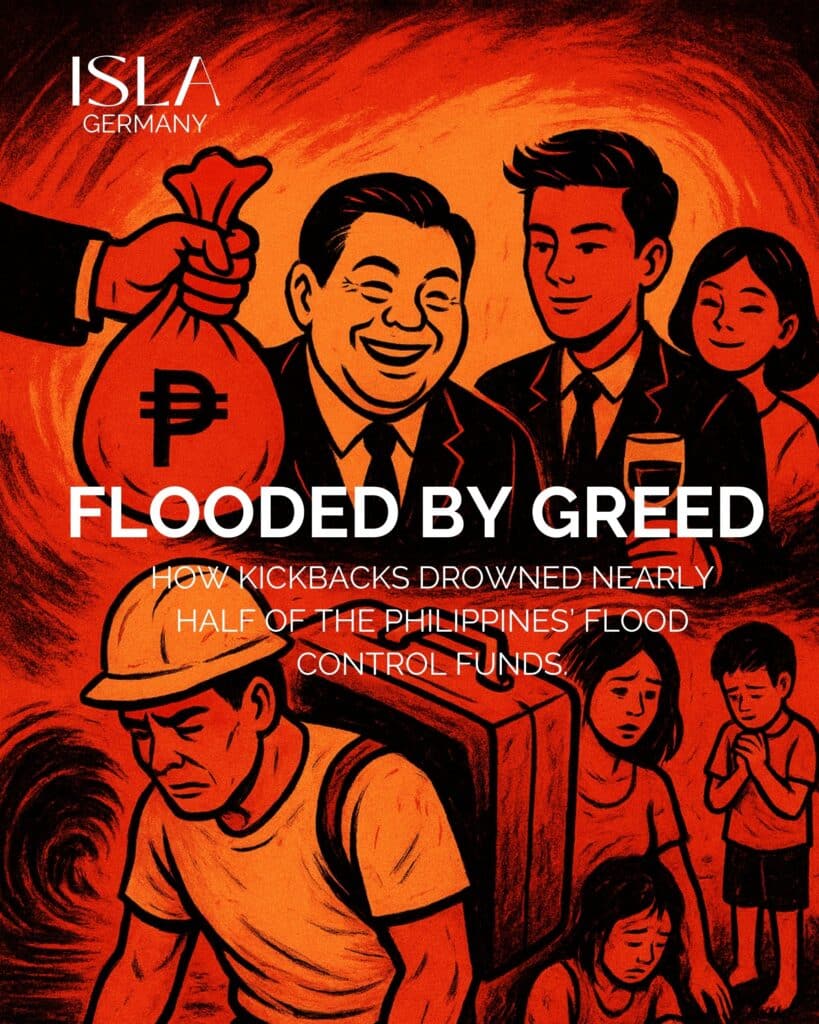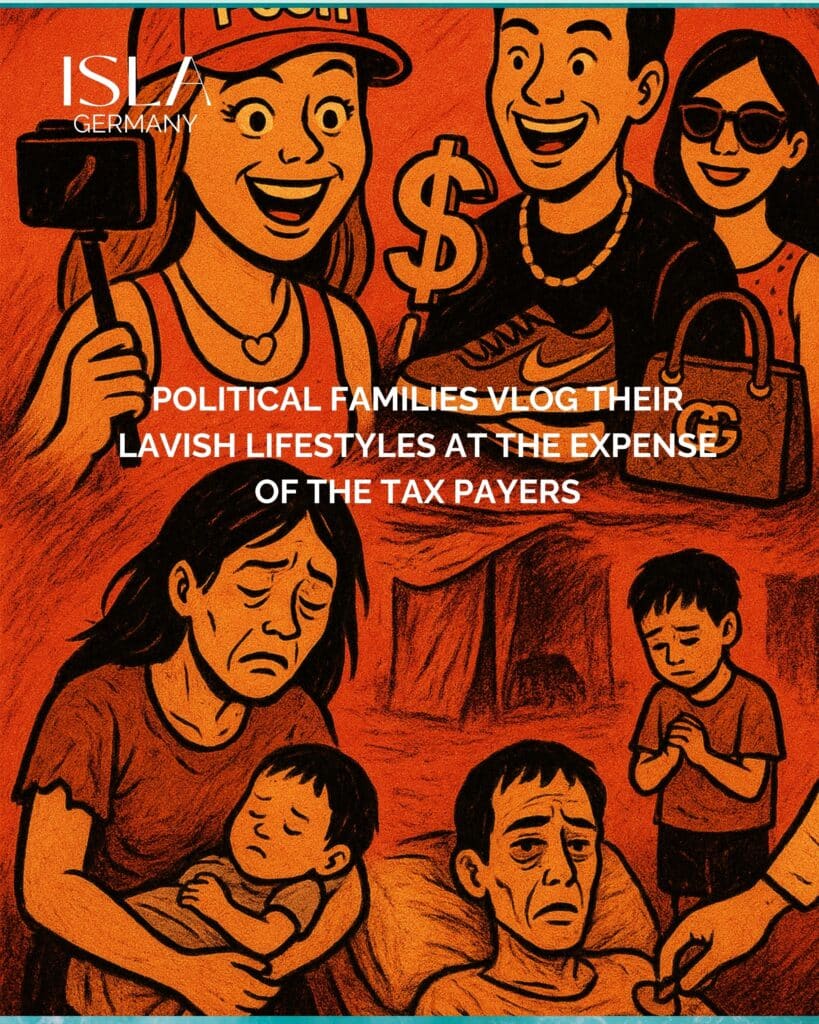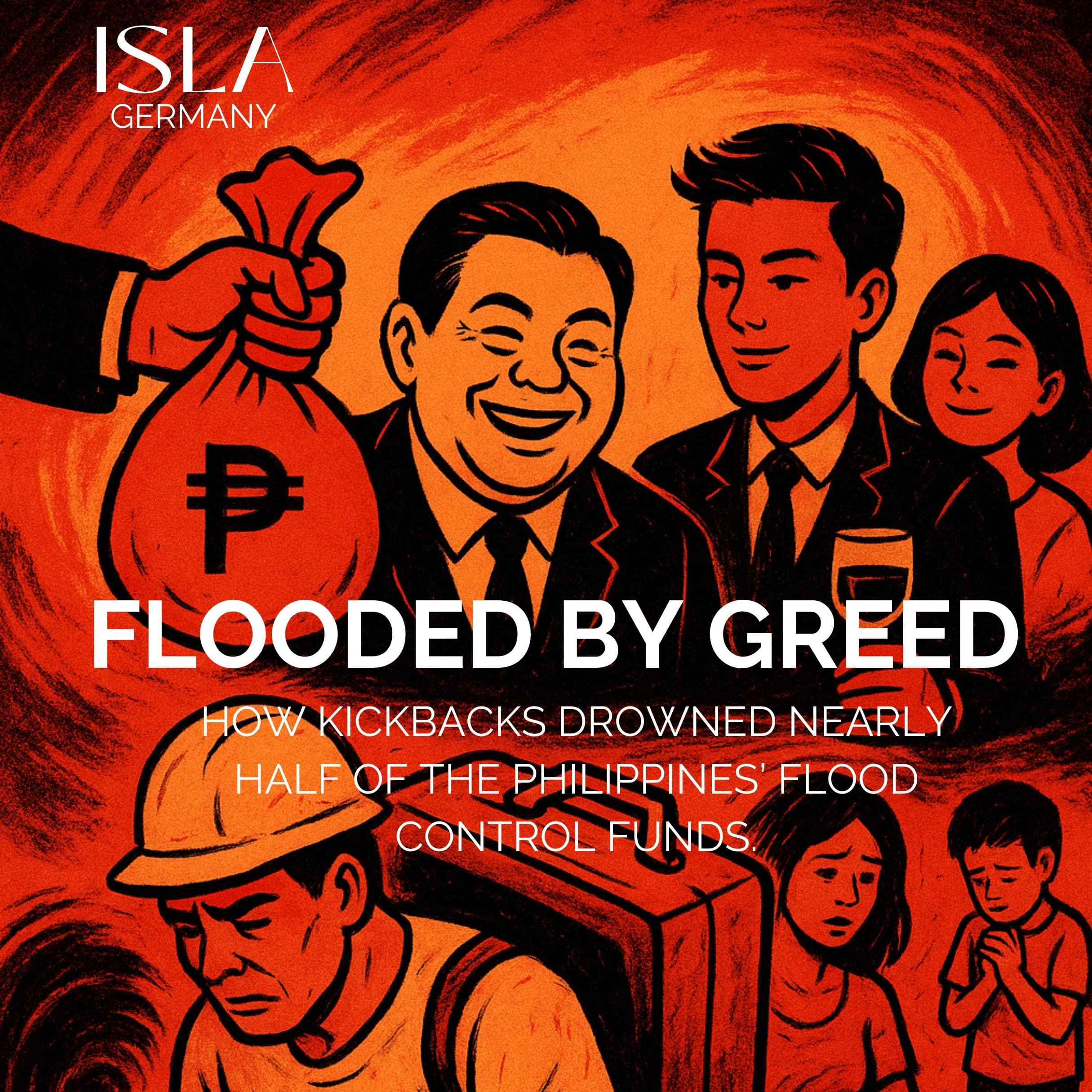Every year, Overseas Filipino Workers send billions back to the Philippines
₱2 trillion in 2024 alone, about 8.3% of the nation’s GDP. These remittances are not luxuries; they are lifelines. They fund education, feed families, and keep the economy afloat. And yet, while OFWs sacrifice comfort and dignity abroad, corruption at home continues to swallow their hard-earned contributions whole.
For millions of Overseas Filipino Workers (OFWs), leaving home is not a choice, it is a necessity. Every year, these men and women cross oceans and continents, taking jobs that many in the Philippines would never consider, all to send money back to their families.
To downplay their hard work and even some cases of unimaginable hardship and abuse.
Jennifer, a mother of three, was deployed to Saudi Arabia as a domestic worker in 2019. Within months, she endured sexual harassment from her employer, and when she sought help from her agency, she was denied assistance. Trapped by the system and desperate to continue providing for her family, she suffered in silence.
Rowena, a 54-year-old worker in Bahrain, faced physical abuse and salary cuts during the COVID-19 pandemic. Pandemic restrictions left many migrant workers vulnerable, with no recourse to justice and little protection from exploitative employers.
Tragedies like the deaths of Jeanelyn Villavende in 2019 and Jullebee Ranara in 2023 in Kuwait remind us that the stakes are literally life and death. Both young women endured extreme abuse, ultimately losing their lives while far from home, driven by the desire to support their families.
Even in Europe, Filipino workers face harsh conditions. In Poland, many are lured by promises of well-paying jobs, only to find themselves trapped in exploitative work with long hours, substandard housing, and little legal protection.
These stories illustrate a painful reality: Filipino migrant workers are often forced to endure exploitation and abuse so their families at home can survive and thrive. Their labor sustains not only their families but also the Philippine economy, yet the sacrifices they make are rarely acknowledged, and the systems that fail them abroad remain unaccountable.
It is easy to celebrate the resilience of OFWs, but we must also recognize the cost of that resilience. Every peso sent home carries the weight of suffering, isolation, and danger. These stories are not just headlines, they are the lived realities of people working tirelessly, often at great personal risk, to give their loved ones a chance at a better life.

For too long, Filipinos have been praised for their resilience! The ability to smile through floods, laugh through hunger, and rebuild after every typhoon. But let’s be clear: resilience has become a prison. It is romanticized suffering that absolves leaders of accountability. Every “smiling victim” on the news hides a harsher truth: we celebrate survival because our government refuses to build systems that prevent tragedy in the first place.
Meanwhile, politicians shamelessly plaster their faces on relief goods, turning public service into a personal brand. Instead of accountability, we get utang na loob. Instead of systems, we get spectacle. And instead of justice, we get a culture that tells citizens to be thankful for scraps.
Worse, many Filipinos abroad, those who’ve escaped the chaos, fall into the trap of tone-deaf privilege. Distance turns into indifference. Silence becomes complicity. To be complacent in the face of corruption is not neutrality, it is a betrayal. As one hard truth reminds us: “Being complacent is being tone deaf, and that’s the loudest form of privilege.”
Compare this to countries like Germany, where high taxes are matched by efficient governance and low corruption. In the Philippines, by contrast, the government collects far less and delivers even less. Yet the people. conditioned from childhood to idolize politicians like celebrities and continue to mistake basic services for charity.
But silence cannot be our response. Not when corruption steals futures. Not when every peso remitted, every road left unfinished, every hospital bed unpaid for, deepens the wound. Privilege is not a free pass. If you are quiet, you are enabling the very system that bleeds your people dry.
This is the call: refuse complacency. Refuse tone-deafness. Refuse to normalize resilience as destiny. OFWs and Filipinos everywhere must reclaim their voices, not as applause for survival, but as demands for justice, accountability, and dignity.
Because resilience should never be our only strength. Our true strength lies in refusing to accept suffering as normal.









